For over half a century, Joni Mitchell has stood out as one of the most distinctive voices in Canadian music, and one that Rolling Stone called “one of the greatest songwriters ever.”
She has been showered with honours and awards from Grammys to the Order of Canada to a spot in the Rock and Roll Hall of Fame, and her songs have been covered by dozens of musicians, among them Sarah MacLachlan, Tori Amos, k.d. lang, Cee Lo Green and Herbie Hancock. In 2007, Canada Post even featured her on a postage stamp. To celebrate the one and only Joni, here are 20 things you might not know about the beloved Canadian musician. Scroll through the list below to begin.
Joni Mitchell was born Roberta Joan Anderson in Fort Macleod, Alta., on Nov. 7, 1943. Her father was a former Royal Canadian Air Force officer who managed a grocery store; her mother was a school teacher. "My mother was a romantic woman,"Mitchell told the Washington Post in 1969. "She raised me on Shakespeare as other parents quoted from the Bible. She encouraged me in old-fashioned things. I kept pressed-flower scrapbooks."
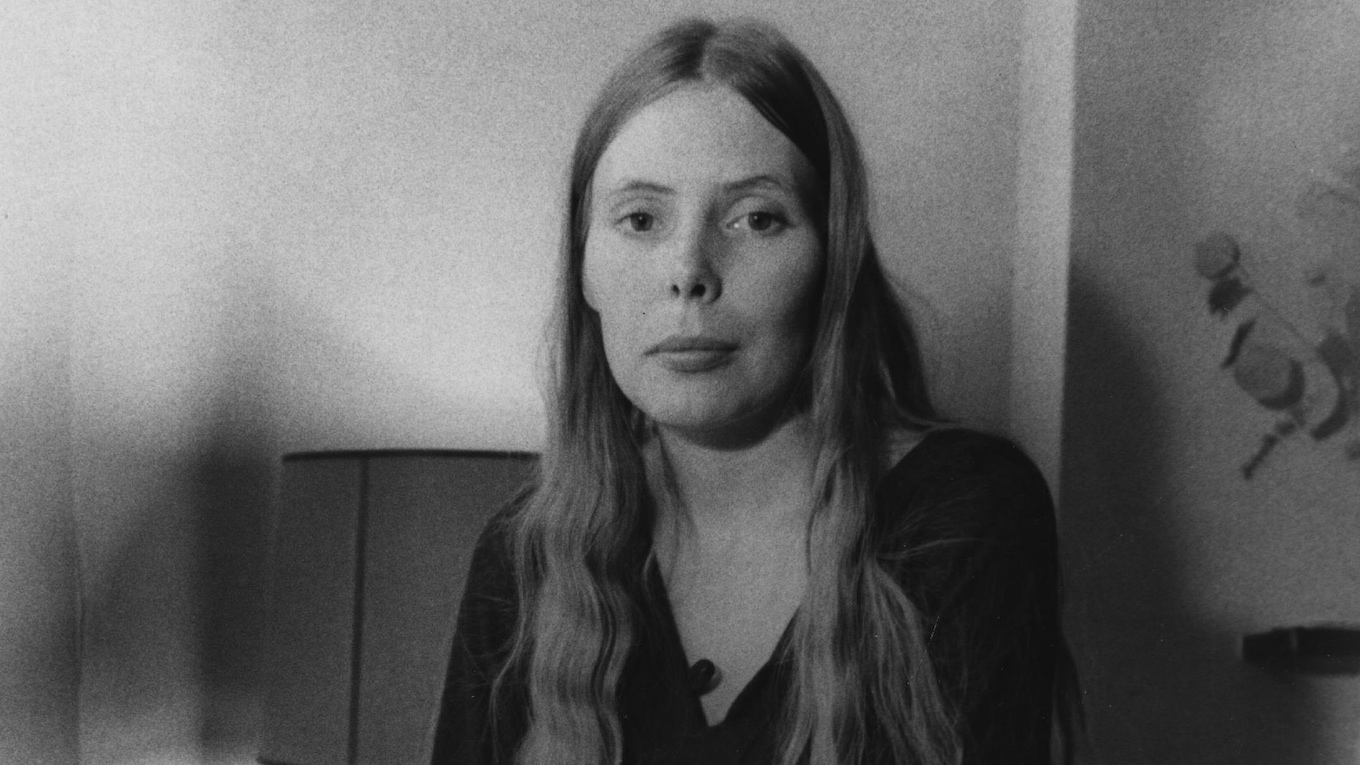
Mitchell was particularly close to her maternal grandmother, Sadie McKee, and she dedicated her first album to McKee, whom Mitchell described as a lady who "loved Robbie Burns and minor-key music and married a farmer who didn't understand."
In 1951, when she was eight years old, Mitchell contracted polio during an epidemic in Canada — the same one that struck Neil Young. Mitchell was bedridden for weeks and faced the very real threat of having to live in an iron lung for the rest of her life.
Mitchell later said it was during that winter in hospital that she became interested in singing. "They said I might not walk again, and that I would not be able to go home for Christmas. I wouldn't go for it. So I started to sing Christmas carols and I used to sing them real loud.... The boy in the bed next to me, you know, used to complain. And I discovered I was a ham."
From early on, Mitchell had a love of trains. As a child, growing up in what she called the "two-block, one-church, one-hotel town" of Maidstone, Sask., she would sit in bed and watch the morning train go by. "The weird thing is that years later my parents met the conductor of that train at a party,"remembered Mitchell in an interview. "He said, 'All I remember of your town is a house with Christmas decorations and a kid that used to wave at me.'"
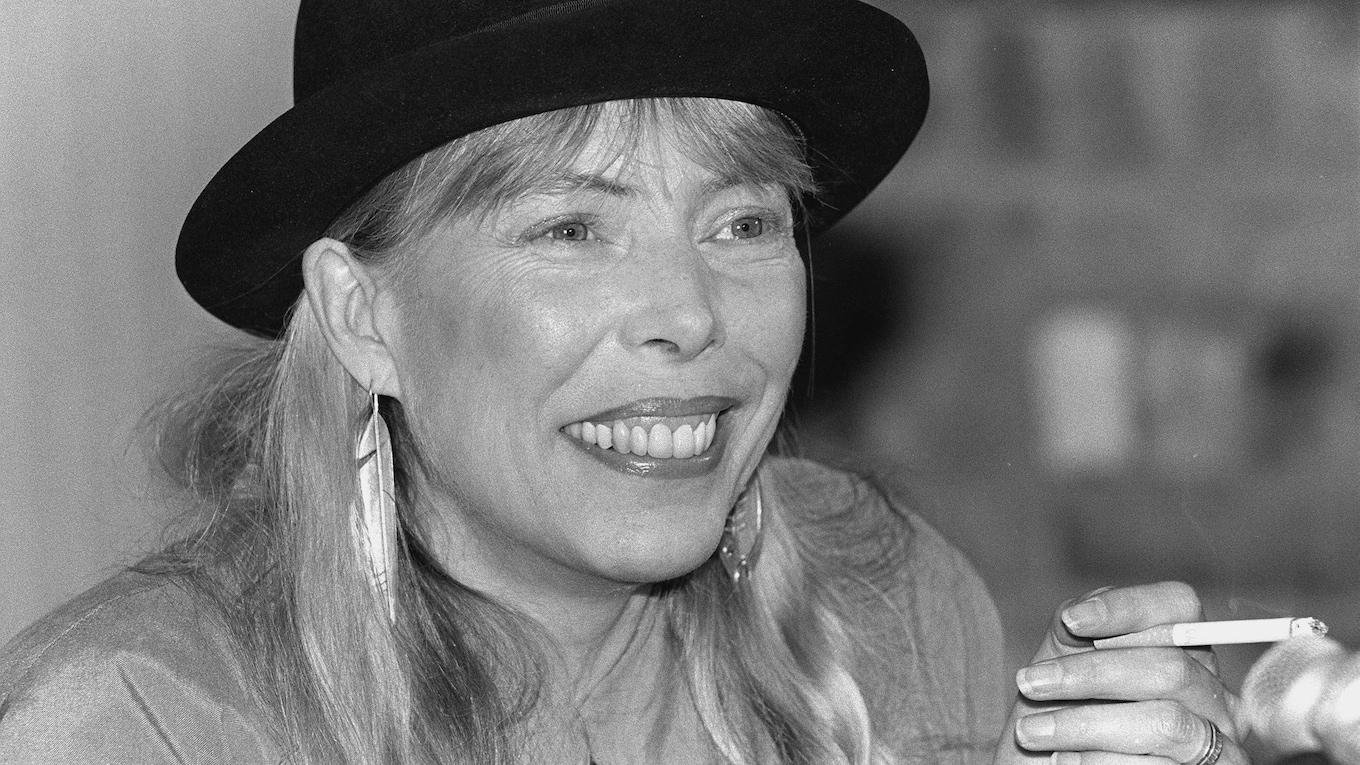
Mitchell's first paid gig was on Halloween night in 1962 at the Louis Riel coffee house at 725 Broadway Ave. in Saskatoon. She was just shy of her 19th birthday. The building is currently a restaurant called Calories.
From a young age, Mitchell was interested in music. She took piano lessons for a few years and taught herself to play the guitar with the help of a Pete Seeger instruction book. She later studied commercial art at the Alberta College of Art and Design in Calgary, but became disillusioned by "meaningless" and "not particularly creative" courses, and left at the end of her first year to try her luck as a folk singer in Toronto. During the three-day trip from Calgary to Toronto on the Canadian Pacific Railroad, she wrote her first song, "Day After Day," a ballad set to the clacking of the train wheels.
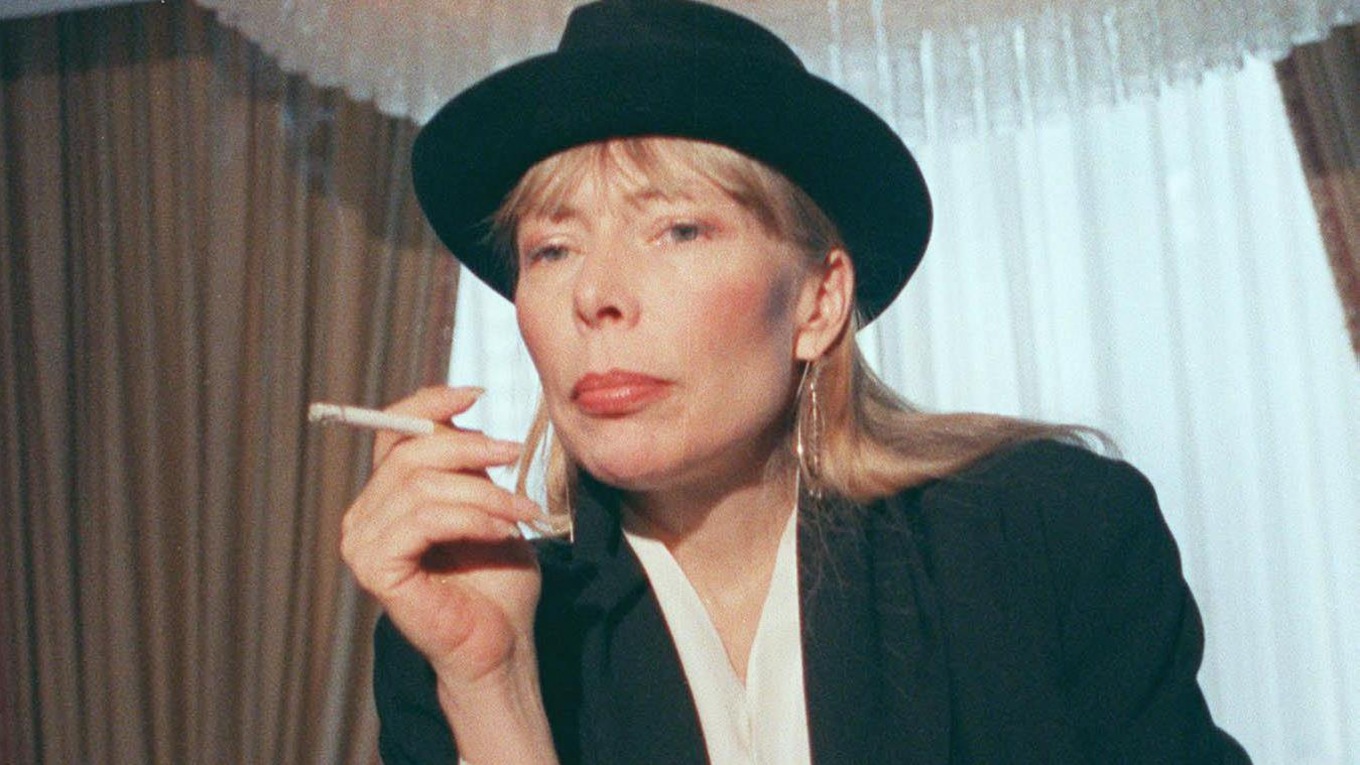
Mitchell couldn't afford the requisite membership in the musicians' union, so she worked as a salesgirl at a Toronto Simpsons–Sears department store until she scraped together enough for the $140 entrance fee. She eventually started singing at small folk clubs such as the Riverboat in Yorkville, then a bohemian neighbourhood.
In fall of 1964, Mitchell became pregnant by her ex-boyfriend Brad MacMath, and was forced to give her daughter up for adoption because she was too poor to raise her. Writing about her song, “Moon at the Window,” Mitchell said, “My daughter's father left me three months pregnant in an attic room with no money and winter coming on and only a fireplace for heat. The spindles of the banister were gap-toothed fuel for last winter's occupants. He left behind a doodle of a pregnant woman seated at a window, looking at a crescent moon and on it he wrote, ‘The thief left it behind, the moon at the window.' The song, other than this Zen saying, has nothing to do with that incident.”
In 1967, Jimi Hendrix attended one of Mitchell's concerts at Le Hibou in Ottawa after playing a concert at the Capitol Theatre. With Mitchell's permission, Hendrix recorded her performance. Unfortunately, both Jimi's recorder and the tapes were stolen several days later.
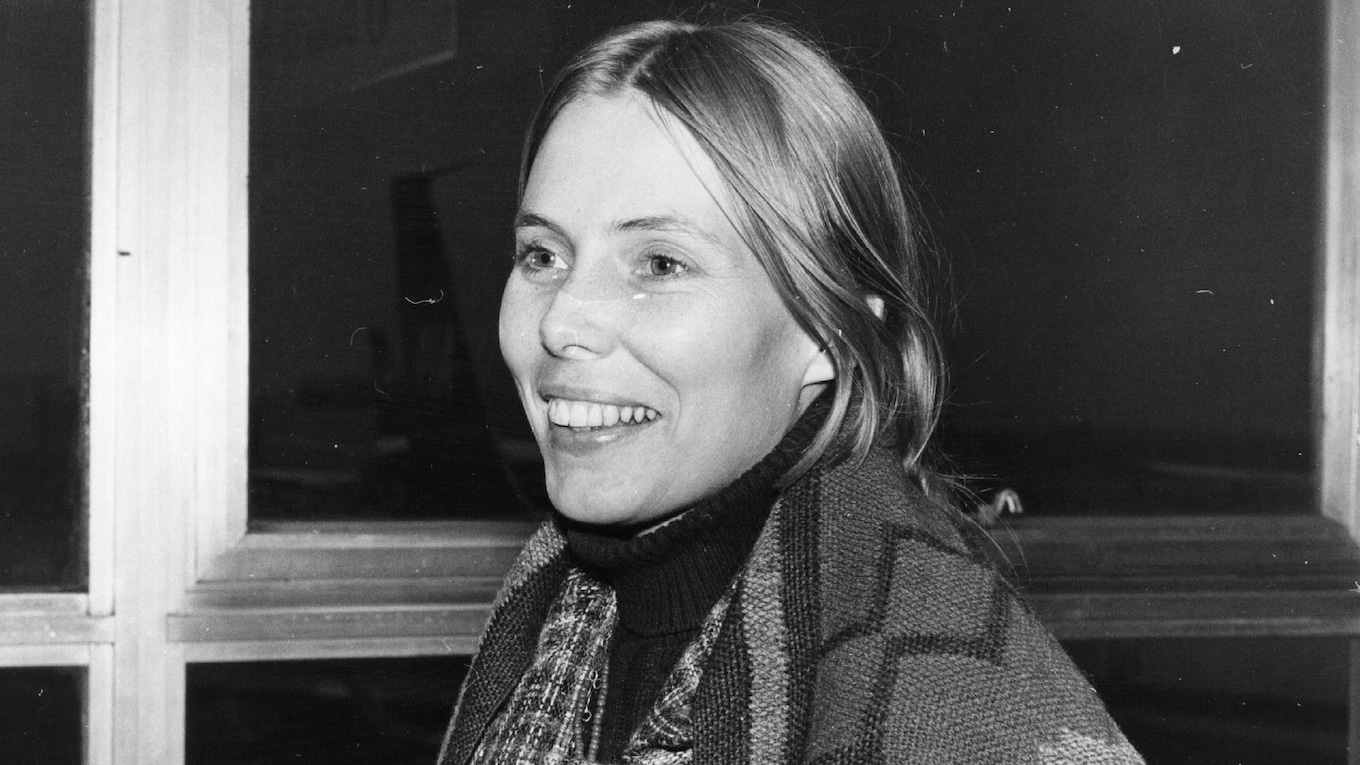
Mitchell got her name when she married Chuck Mitchell, a singer and cabaret performer from Detroit who was another regular on the Toronto folk circuit. They married in June, 1965, reportedly just 36 hours after they met. The pair moved to Detroit, where they often performed together.
After a year, the marriage ended, and Joni Mitchell moved to New York, where she continued her career as a solo artist. She later said she did not plan to remarry. "I feel like I'm married to this guy named Art," she said in an interview. "I'm responsible to my Art above all else ... my family consists of pieces of work that go out into the world. Instead of hanging around for nineteen years they leave the nest early."
And while Mitchell's primary love was art, she did find romance with other high-profile musicians, among them David Crosby, James Taylor, Graham Nash, Leonard Cohen and Jackson Browne. "The rock 'n' roll industry is very incestuous," she told MacLean's. "We have all been close at one time or another, and I think that a lot of beautiful music came from it. A lot of beautiful times came from it, too, through that mutual understanding. A lot of pain, too, because, inevitably, different relationships broke up."
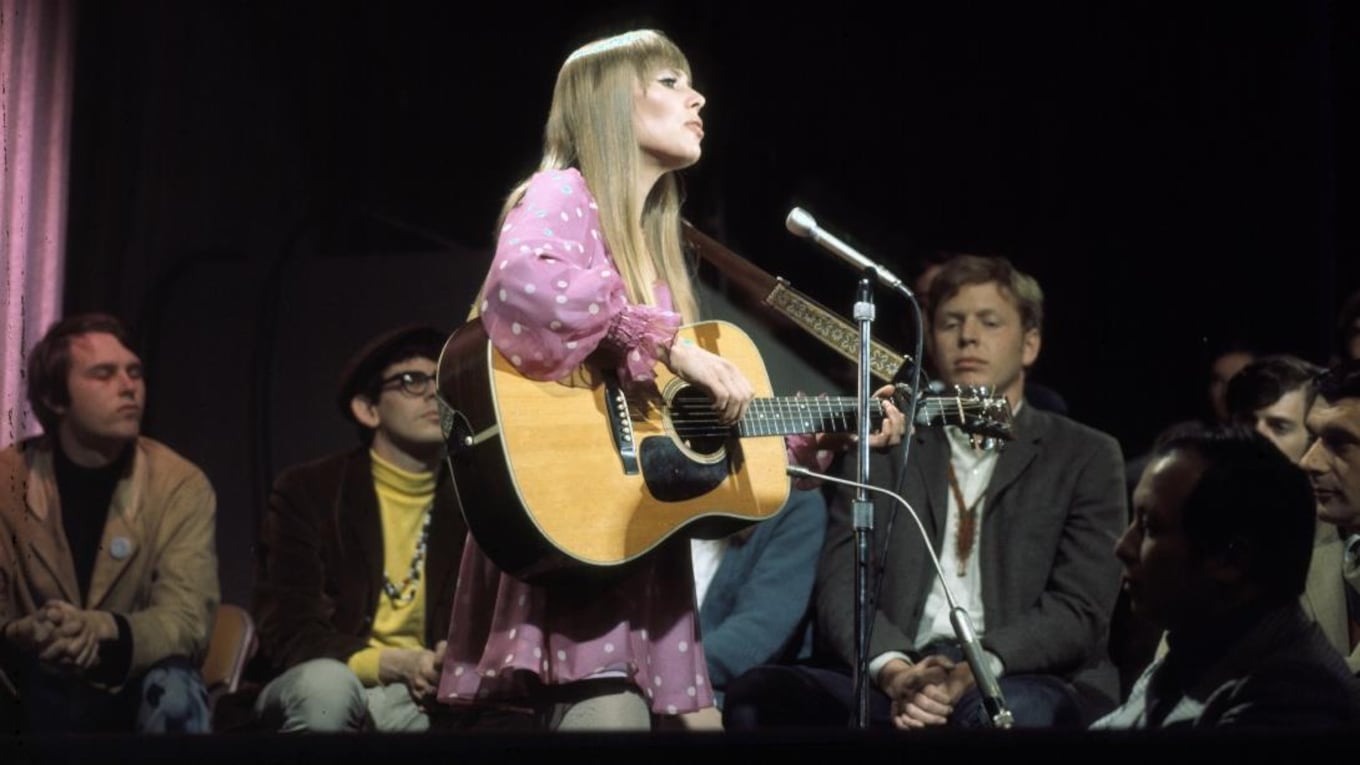
A lifelong collaborator, Mitchell (shown here with collaborator and jazz legend Herbie Hancock) has performed and recorded with a host of artists — but not all of them made the cut. Recounting the recording of her song "Ladies Man," Mitchell said, "I invited Don Henley to come and sing with me on this one. After he left, when I was playing it back, I was amazed at how similar our voices sounded. It took a while to even notice that a new singer had been introduced. So I went across the hall to where Lionel Richie was recording and I conscripted him. There was the contrast I wanted, so I replaced Don with Lionel. The old cutting room floor routine."
Mitchell's musical styles and themes have shifted dramatically over time. As she told the LA Times, "My first four albums covered the usual youth problems — looking for love in all the wrong places — while the next five are basically about being in your 30s. Things start losing their profundity; in middle-late age, you enter a tragedian period, realizing that the human animal isn't changing for the better. In a way, I think I entered straight into my tragedian period, as my work is set against the stupid, destructive way we live on this planet. Americans have decided to be stupid and shallow since 1980. Madonna is like Nero; she marks the turning point."
Although she has always been best known for her music, Mitchell is also a gifted visual artist, and many of her works were featured on her album covers. "All through this," she told the Globe and Mail, "I have always thought of myself as a painter derailed by circumstance."
In 2002, Mitchell was appointed a companion of the Order of Canada. "It's a beautiful award," she later told Reader's Digest. "But my two highest honours came from black people. In the green room at the Grammys, the door flew open and in came this black girl. She threw her arms out at said, 'Girl, you make me see pictures in my head. Give me a hug.' Now that's an honour. The other one was a blind black piano player named Henry Butler who said to me, 'You make raceless, genderless music.'"
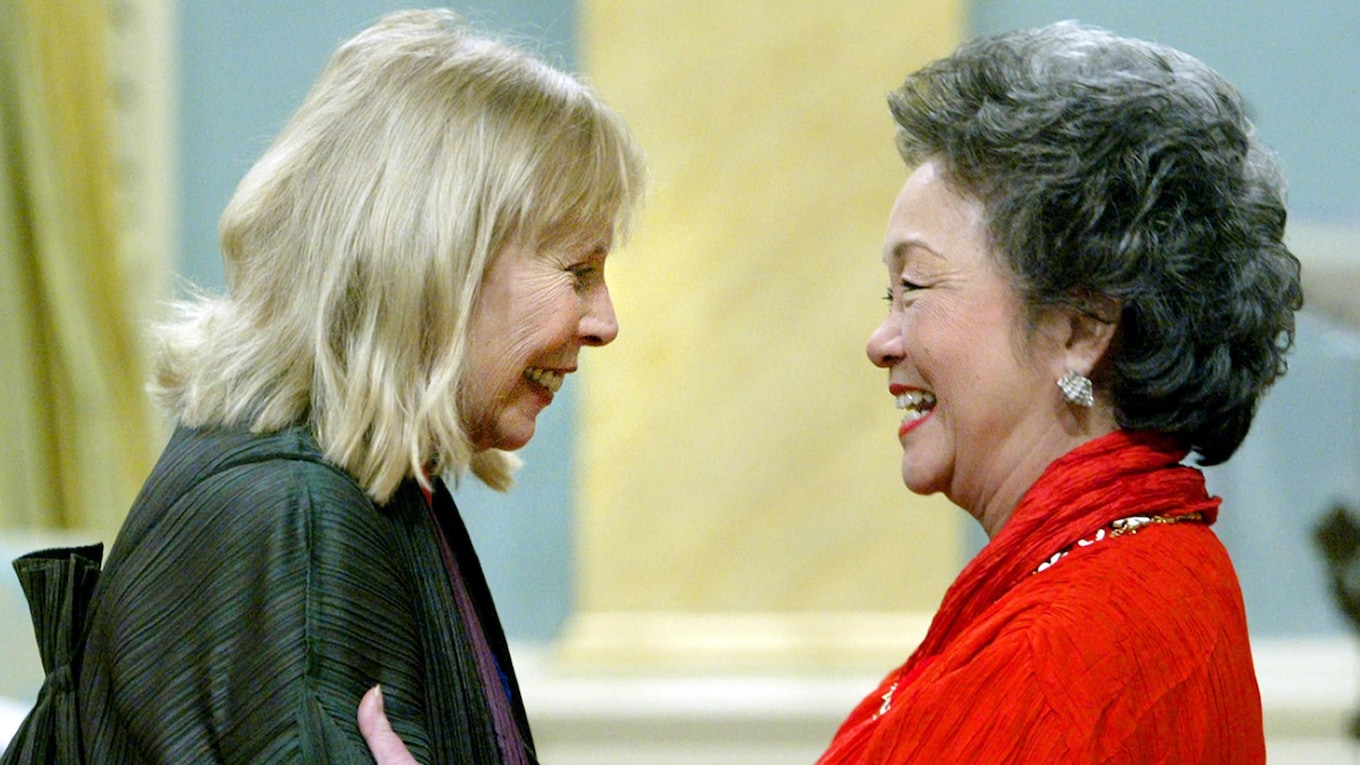
Mitchell has never been shy about expressing her opinions about politics, religion and even fellow musicians. In a particularly outspoken interview with the LA Times in 2010, Mitchell stirred controversy with some unexpected remarks about artists from Madonna to Bob Dylan. "Bob is not authentic at all," she said. "He's a plagiarist, and his name and voice are fake. Everything about Bob is a deception."
Mitchell released her last album of original material,Shine, in 2007, and quit touring. The album entered the charts at number 14, the highest position sinceHejira, which she had released 30 years earlier.
When asked in an interview how she could retire from something that was such a primary part of her life, Mitchell replied, "Easy. It's just like a wind that blew through me, that stopped blowing. It's gone."
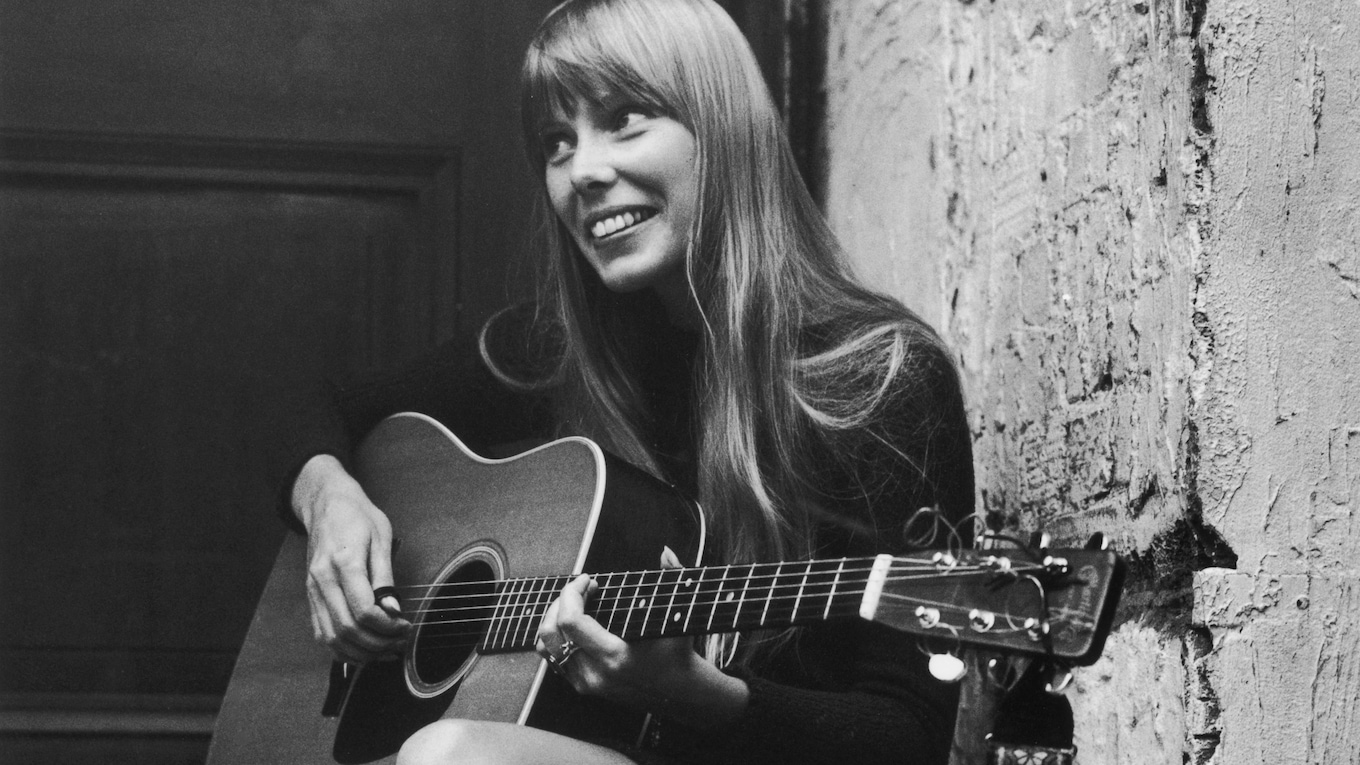
To hear more about Joni Mitchell and find out what she's up to now, make sure to check out Jian Ghomeshi's feature interview on Q.

